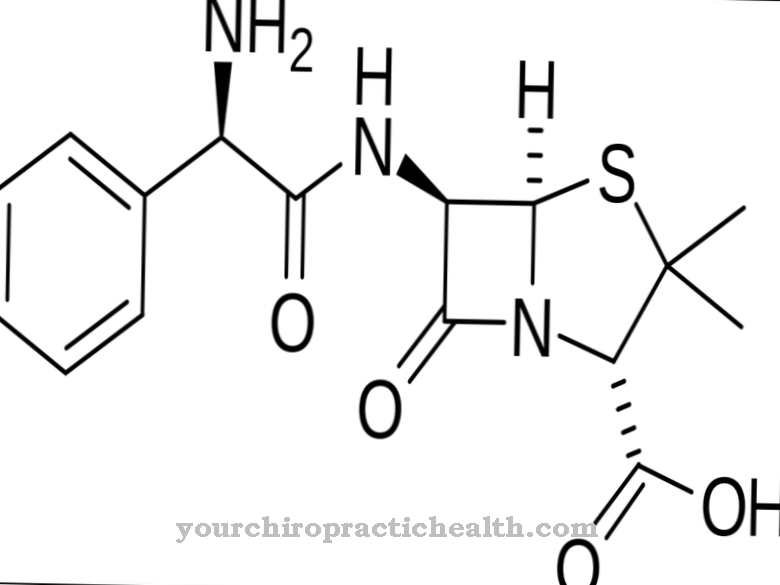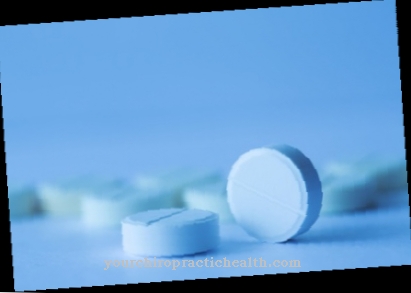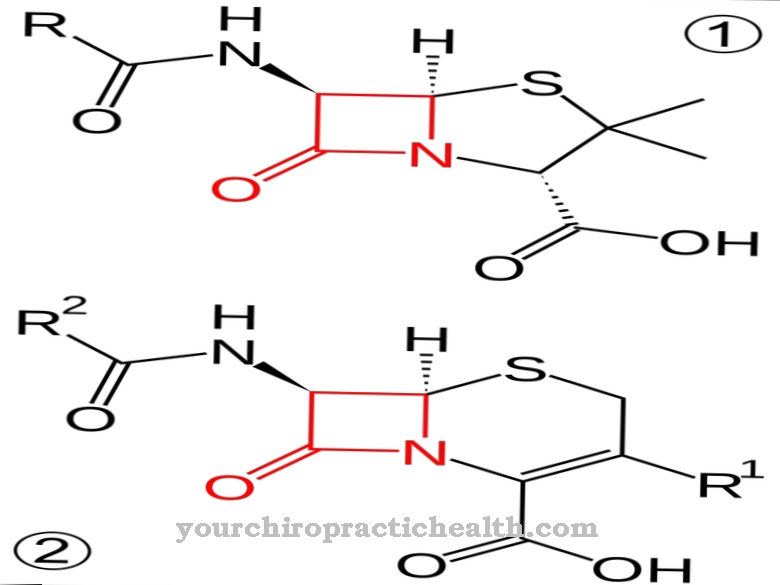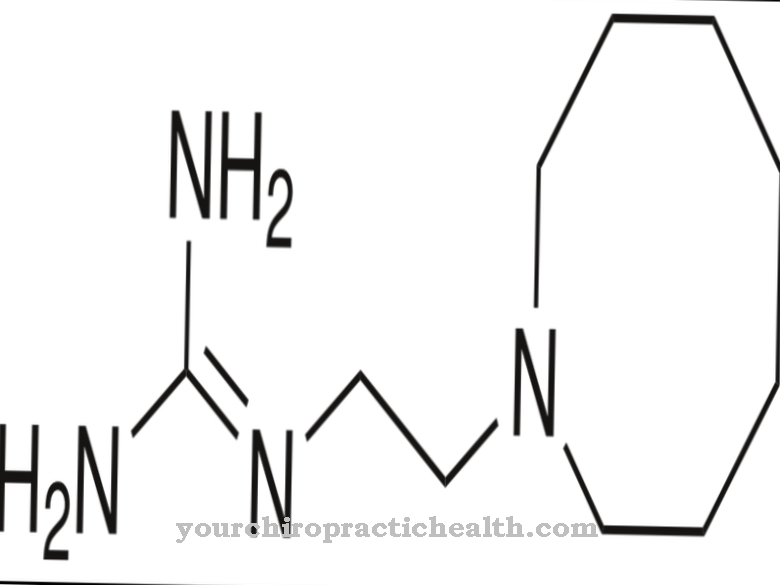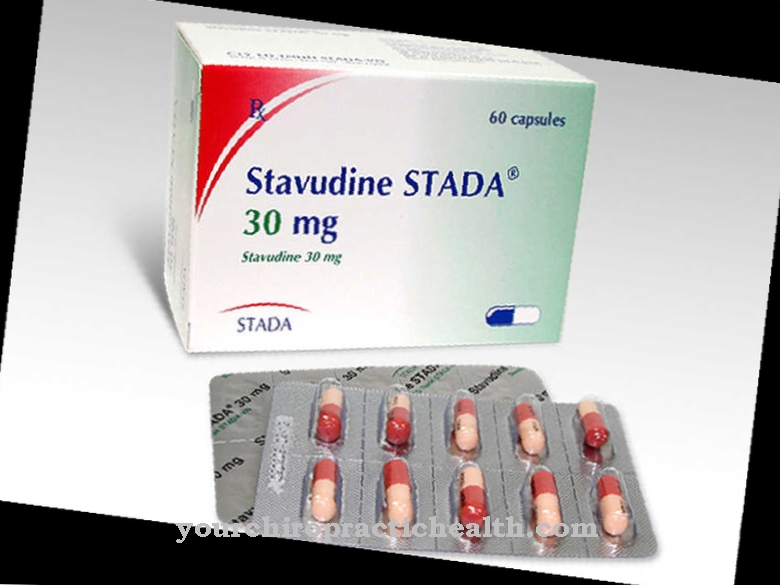Bendamustine is a highly effective chemotherapeutic agent which, compared to conventional therapies (CHOP regimen), achieves better treatment results for certain types of cancer. At the same time, it is associated with significantly fewer side effects than these. Most of those affected rate the rarely occurring hair loss as positive.
What is bendamustine

Bendamustine (molecular formula: C16H21Cl2N3O2) is present as bendamustine hydrochloride in cancer drugs. Chemically it belongs to the group of bifunctional alkylating agents and to the subgroup of nitrogen mustard derivatives. However, compared to these, it causes far fewer side effects.
Bendamustine is a cytostatic that deactivates tumor cells through alkylation. It inhibits tumor growth in hematological and solid tumors equally efficiently. Bendamustine is used either as a single preparation or together with the monoclonal antibody rituximab.
The active ingredient was developed in the GDR in the 1960s and scientifically described for the first time in 1963. The medics called it IMET3393. It was available as a drug at the end of the 1960s (trade name: Cytostasan®). It was approved in the Federal Republic of Germany in 1993.
The drug, which is effective within a few minutes, fights cancer cells much more efficiently than other representatives of its group of active ingredients. It not only deactivates them, but also triggers their suicide program (apoptosis). In combination therapy with rituximab, even tumor cells resistant to alkylating agents and reacting in a refractive manner are contained.
The exact dosage of the agent depends on the clinical picture, the degree of pretreatment and the size of the patient's body surface. Bendamustine is available as a mono preparation under the trade names Levact® and Ribomustin®.
Pharmacological effect
Bendamustine works extremely quickly: within about 7 minutes it is distributed in all body tissues, regardless of the tumor stage and age of the patient. However, it does not spread evenly throughout the body. In the liver it is immediately converted into the cytotoxic hydroxy derivative. Bendamustine has anti-neoplastic and anti-cytoocidal effects. The active ingredient is metabolized in the liver. This produces the active metabolites M3 and M4, which, however - compared to the parent substance - show a much lower effectiveness: M3 occurs in the blood plasma in a concentration of about 1:10 compared to bendamustine, M4 in a ratio of 1: 100.
Bendamustide destroys the DNA of the tumor cells by alkylation. It changes the DNA double strand by stimulating the cross-linking of DNA and functional proteins. This results in double helix strand breaks and also chromosome strand breaks that can no longer be repaired. The cancer cell mutates and its functionality is disrupted. The damaged genetic information can no longer be read and transcribed. As a result, the degenerated cell can no longer divide / multiply and eventually dies. The repair of damaged tumor DNA is very severely prevented, especially in breast cancer.
After intravenous administration, more than 90% of bendamustine binds to plasma proteins (albumin) and is nevertheless excreted from the body within an average of 40 minutes. Almost 95% of it is discharged through the urinary tract. Only about a tenth of the administered active ingredient is not metabolized by the body. They can be detected in the urine.
Medical application & use
Bendamustine is only given parenterally. The selected dose, taking into account individual factors (age, type of cancer, tumor stage, pretreatment, size of the body surface) is between 50 and 150 mg / m² head. The agent is usually applied as a short-term infusion (30 to 60 minutes) on two consecutive days. The chemotherapy is repeated every 4 weeks. At a lower dose (50 to 60 mg / m² KOF) it can also be administered on up to 5 consecutive days.
It is advantageous that the intake of bendamustine does not lead to cross-resistance to other cytostatics. The drug is approved for the treatment of Hodgkin's disease, multiple myeloma, mantle cell lymphoma, indolent non-Hodgkin's lymphoma and chronic lymphocytic leukemia (CLL).
However, bendamustine has also been shown to be effective in the treatment of breast cancer - for which it was approved in the GDR - and in small cell lung cancer. For example, the survival time for indolent non-Hodgkin lymphoma and mantle cell lymphoma in later stages of cancer with the combination therapy of bendamustine and rituximab compared with the standard treatment (CHOP regimen) is about 70 to 31 months progression-free. When CHOP was given, tumor growth continued, albeit at a slower rate.
Bendamustine is not effective for melanomas, germ cell tumors, soft tissue sarcomas, liver carcinoma, bile duct carcinoma and squamous cell carcinoma of the head and neck.
Risks & side effects
Common side effects include white blood cell deficiency, anemia (anemia), myelosuppression, loss of appetite, nausea, hypersensitivity reactions, impaired sense of taste, dry mouth, colicky stomach pain, feelings of heat, redness of the face, irritation of the mucous membranes, diarrhea, constipation and infection. In rarer cases, skin disorders, allergic reactions and inflammation of the veins at the injection site may occur.
Hair loss (alopecia) is very rare and never affects the entire scalp. Nausea is also less common after treatment with bendamustine than with other cytostatics. The nausea occurs after a time delay in about one third of the patients and is treated with an anti-nausea agent (5HT3 antagonist).
The anti-tumor drug should not be used in cases of impaired kidney function, severe liver damage, altered blood count, jaundice, previous major operations, yellow fever vaccination, infections, pregnancy and breastfeeding (in animal experiments, the embryo was damaged). Whether bendamustine crosses the placental barrier or passes into breast milk has not yet been determined in humans.
Patients of sexually active age should use effective contraception during chemotherapy with bendamustine, and male patients for up to 6 months after the last infusion.


